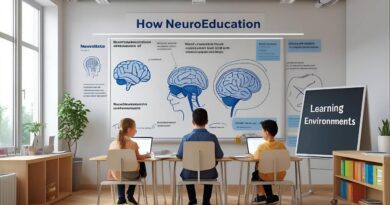Learning is Empowering, Yet Sometimes Exhausting—Here’s Why
Learning is one of the most transformative experiences you can ever go through. It has the power to shift perspectives, elevate your confidence, unlock new opportunities, and change the trajectory of your entire life. Whether you’re mastering a new language, picking up a new skill, or diving deep into academic research, the act of learning can feel incredibly empowering. But let’s be real—it can also feel like a mental beatdown. Ever walked away from a study session completely drained? Or felt overwhelmed when trying to grasp a new concept? That’s the paradox of learning: it lifts you up and wears you down at the same time.
In this article, we’re going to peel back the layers on why learning feels like a superpower one minute and like a mental marathon the next. We’ll explore what’s going on in your brain, how emotions play a role, and what you can do to harness the empowerment without collapsing from the exhaustion.
The Dual Nature of Learning
The Power of Knowledge
Knowledge is power, right? We’ve all heard that a thousand times—and for good reason. The more you know, the more confident, competent, and capable you become. Learning empowers you to take charge of your life. It gives you the tools to make better decisions, solve problems creatively, and step into rooms you previously felt unworthy of entering. It opens doors to careers, connections, and even self-discovery.
But empowerment isn’t just external—it’s deeply internal. Each new skill you gain becomes a part of your identity. You feel proud of your growth, and that pride is what fuels motivation. When you start seeing progress—like being able to speak a new language or understanding a concept that once stumped you—you realize your brain is far more powerful than you gave it credit for.
Empowerment through learning also extends to autonomy. You don’t have to rely on others when you understand something thoroughly. You gain control over your actions and decisions. Whether it’s fixing something around the house or advocating for yourself in a meeting, knowledge puts you in the driver’s seat.

The Mental Toll of Absorbing New Information
But here’s the flip side—learning can be exhausting. It demands mental energy, focus, and persistence. When you sit down to absorb new information, your brain is doing far more than just reading or listening. It’s analyzing, connecting new ideas with existing knowledge, discarding irrelevant details, and storing the essentials in long-term memory.
This is especially hard when you’re learning something unfamiliar. Think of your brain like a muscle: the more you work it, the stronger it becomes—but overworking it without rest leads to fatigue. Ever noticed how after an intense learning session, your brain feels like mush? That’s not your imagination—it’s cognitive fatigue.
What makes learning even more draining is that it’s not just about taking in information. It often involves unlearning outdated ideas, restructuring your thinking, and building entirely new frameworks of understanding. That process takes a lot of mental bandwidth.
And let’s not ignore emotional fatigue. Trying to stay motivated, battling self-doubt, and overcoming setbacks during learning all add to the weight. So yes, while learning is empowering, it also comes with a serious mental cost.
How the Brain Responds to Learning
Cognitive Load Theory
Let’s dig into the science of why learning can feel so mentally heavy. One key concept is Cognitive Load Theory. This theory explains how our working memory has a limited capacity. When you’re learning something new, your brain has to juggle new terms, ideas, and processes all at once. The more complex the material, the heavier the cognitive load.
Imagine trying to learn how to play the guitar. You’re focusing on finger placement, rhythm, strumming techniques, and maybe even reading sheet music. That’s a lot of information to handle simultaneously. Your brain starts to feel “full” because it literally can’t process everything at once.
When your cognitive load maxes out, you feel tired, frustrated, and even disoriented. That’s why learning in chunks, using visual aids, or applying real-world examples can lighten the load and make information stick better. It’s not that your brain isn’t capable—it’s just that it has limits, like any other system.
Brain Fatigue and Mental Energy Depletion
Just like your muscles get tired from lifting weights, your brain gets tired from heavy cognitive work. This is called mental fatigue, and it happens when your brain’s resources—like glucose and neurotransmitters—get depleted. These are the fuels that power your focus, memory, and concentration.
After intense mental exertion, your brain needs recovery time. This is why studying or working non-stop without breaks leads to diminishing returns. You start making more mistakes, your recall becomes fuzzy, and your motivation tanks.
Mental fatigue is sneaky. You might not even realize how drained you are until you step away. That’s why incorporating downtime—like a short walk, a nap, or even zoning out to music—isn’t a luxury. It’s a necessity for sustainable learning.
Why Learning Can Feel Like Physical Labor
Ever walked out of a long lecture or a training session and felt physically wiped out, even if you didn’t move much? That’s because mental effort uses up physical resources. Your body diverts energy to support brain activity—elevated heart rate, increased oxygen consumption, and glucose metabolism.
This is why learning isn’t just “mental work.” It’s holistic. Your whole body feels the effort. So if you’ve ever thought, “Why am I so tired after just sitting and studying all day?”—now you know. It’s not in your head. Well, actually, it is—but in a literal sense.



